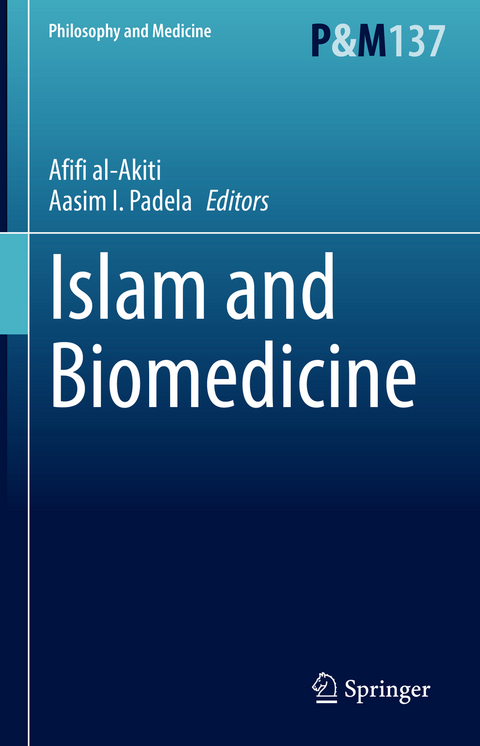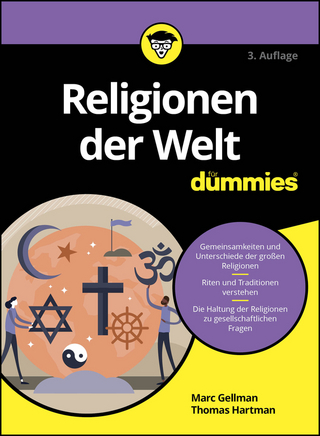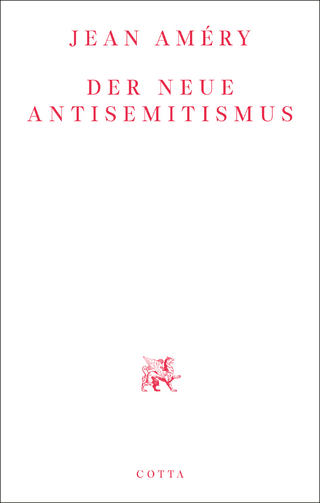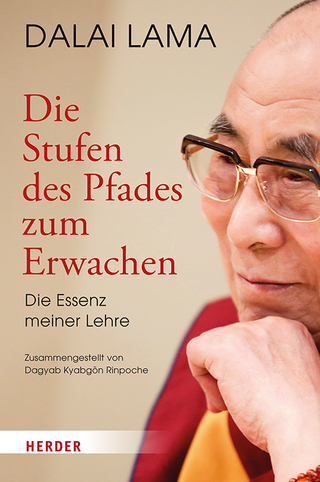
Islam and Biomedicine
Springer International Publishing (Verlag)
978-3-030-53800-2 (ISBN)
Dato' Prof. Afifi al-Akiti is the Kuwait Fellow in Islamic Studies at the Oxford Centre for Islamic Studies and Lecturer in Islamic Studies in the Faculty of Theology. He is also a Fellow of Worcester College, Oxford. Dato' Afifi is trained as a theologian and philologist in both the Islamic and Western traditions: educated initially at the feet of the ulema of the Muslim world. His areas of expertise are Islamic theology, philosophy and science. He has worked on several BBC documentaries, including the award-winning Science and Islam(2009). In 2010 he was made a Member of the Ulama Council of Malaysia and elected into the Privy Council of the state, the Dewan Negara, constitutionally as a Life Peer. Since 2010, Dato' Dr Afifi has been listed in The Muslim 500: The World's 500 Most Influential Muslims. Dr. Aasim I. Padela is the Director of the Initiative on Islam and Medicine, Associate Professor of Emergency Medicine, and a faculty member of the MacLean Center for Clinical Medical Ethics and Divinity School at the University of Chicago. Dr. Padela is a clinician researcher with scholarly foci at the intersections of healthcare, bioethics, and religion. Using Muslim Americans and Islam as a model, he studies how (i) religion impacts patient health behaviors and healthcare experiences, (ii) informs the professional identities and workplace experiences of clinicians, and (iii) furnishes bioethical guidance to patients, providers, policy-makers, and religious leaders. Dr. Padela holds an MD from Weill Cornell Medical College and received an MSc in Healthcare Research from the University of Michigan. Prior to that, he received Bachelor's degrees in Biomedical Engineering and Classical Arabic and Literature from the University of Rochester. He has studied Islamic theology and law in both seminary and academic settings and holds traditional licenses in several Islamic sciences. He has authored over 100 peer-reviewed journal articles and book chapters, serves in an editorial capacity for the Encyclopedia of Islamic Bioethics, American Journal of Bioethics, BMC Medical Ethics, Global Bioethics, International Journal of Islam, BETIM Journal of Medical Humanities, and TAHFIM Journal of Islam and the Contemporary World. His work and expert commentary has been featured in national and international media including the New York Times, USA Today, the Chicago Tribune, Washington Post, National Public Radio, BBC, and CNN.
Taking On the Ghazalian Challenge of Integrating Science and Theology with Islam and Biomedicine.- Medical Epistemology in Arabic Discourse from Greek Sources to the Arabic Commentary Tradition.- The Piety of Health: The Making of Health in Islamic Religious Narratives.- The Concept of a Human Microcosm: Exploring Possibilities for a Synthesis between Traditional and Modern Biomedicine.- Islam in Engagement with Life, Health and Medicine.- When Does a Human Fetus Become Human?.- At the Meeting of the Two Seas: The Value of Integrating Philosophy of Science and Religion in Determining the Nature and Purpose of the Human Self.- Muslim Values and End-of-Life Healthcare Decision-making: Values, Norms and Ontologies in Conflict?.- Intersection between Science, Philosophy and the Sunni Theological and Legal discourse in Defining Medical Death.- Islam and Science: Deepening the Discourse.- Science through an Islamic Epistemological Framework.- Interface between Islamic Law and Science: Legal Construction of Science in Light of Islamic Bioethical Discourses on Genetic and Reproductive Technologies.- Integrating Science and Scripture to Produce Moral Knowledge: Assessing Human Interests and Necessities in Islamic Bioethics.
"Islam and Biomedicine accomplishes a major feat by introducing some of the central philosophical issues that shape the science of biomedicine today and pose challenges for Muslims committed to traditional Islamic thought and practice. ... Islam and Biomedicine deserves to be read by all Muslims in the field of biomedicine with interests in deeper theological and philosophical matters." (Aasim Hasany, Journal of Islamic and Muslim Studies, Vol. 8 (2), November, 2023)
"Islam and Biomedicine, is groundbreaking both in its approach and the invaluable content that it presents. The relevancy of the volume to Islamic ethics is translucent by the above chapter summaries ... . Indeed, each chapter opens up the researcher's horizon by posing significant questions and ends with successful attempts to shed light on the ethical challenges that the Muslim communities face when it comes to advancements in biomedical sciences." (Nasrin Rouzati, Journal of Islamic Ethics, Vol. 7 (1-2), 2023)
"The book is undoubtedly the beginning of exciting future works in this area. ... Islam and Biomedicine contains invaluable contributions to the far-reaching conversation between Islam and science. By bringing together theologians, clinicians, and intellectual historians, the book draws sustained attention to the shared intellectual space of Islam and biomedicine. It provides a foundation for dedicated research at this junction for many years to come." (Irwan Hanish, ISTAC - Journal of The International Institute of Islamic Thought and Civilization, Vol. 28 (1), 2023)
| Erscheinungsdatum | 31.08.2022 |
|---|---|
| Zusatzinfo | VIII, 326 p. 12 illus. |
| Verlagsort | Cham |
| Sprache | englisch |
| Maße | 155 x 235 mm |
| Gewicht | 624 g |
| Themenwelt | Geisteswissenschaften ► Religion / Theologie |
| Sozialwissenschaften ► Soziologie | |
| Schlagworte | health and the islam • human microcosm • integrating science and theology • islam and biomedicine • islam, health and medicine • medical epistemology • muslim values and end-of-life healthcare decision- • muslim values and end-of-life healthcare decision-making • when is a human fetus become human? |
| ISBN-10 | 3-030-53800-1 / 3030538001 |
| ISBN-13 | 978-3-030-53800-2 / 9783030538002 |
| Zustand | Neuware |
| Haben Sie eine Frage zum Produkt? |
aus dem Bereich


